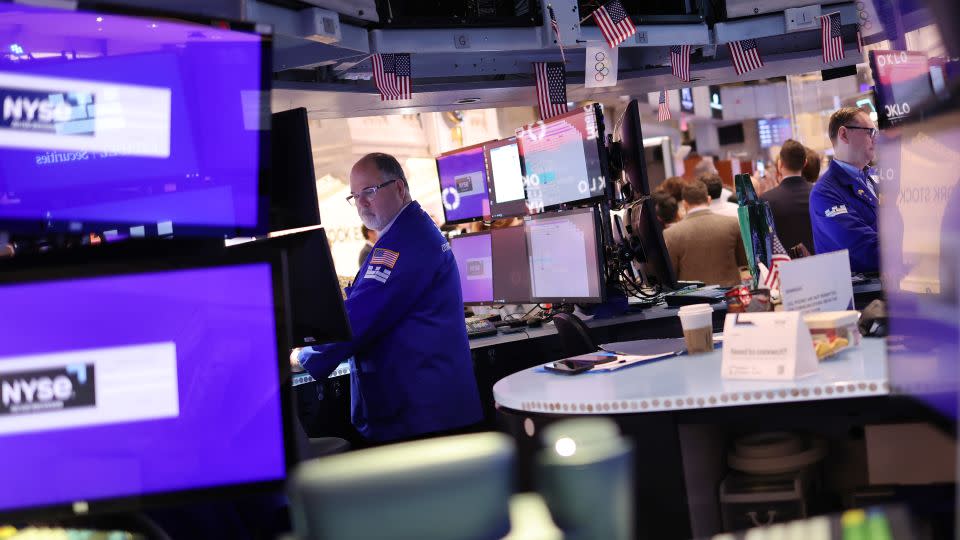Why the Dow fell 1,000 points in the last three days

US markets have had a rough week. The Dow has fallen by around 1,000 points over the last three days alone — and the negative momentum didn’t let up Thursday.
The Dow closed 331 points lower, or 0.9%. The S&P 500 was down 0.6% and the Nasdaq Composite dropped 1.1% as lackluster earnings results from Salesforce (CRM) worried investors.
Shares of the customer relationship management company fell 19.7% after it reported a revenue miss and lowered expectations for the year ahead, notching its worst day in two decades.
That comes after a bad Wednesday for the broader market, with all 11 sectors of the S&P 500 closing lower. The Dow fell by more than 300 points, driven largely by a tick down of shares of chipmaking giant Nvidia (NVDA), pulling large tech stocks down along with it.
This week’s downturn has been fueled by a range of factors, including earnings and stronger-than-expected economic data. Bonds have taken a particular hit as concerns about inflation mount and after a weak Treasury auction on Wednesday. The 10-year Treasury yield climbed to its highest level since late April.
Robust economic data has also spooked investors, who worry that signs of a stronger economy could push the Federal Reserve to keep interest rates higher for longer as it battles to bring down inflation.
The S&P 500 has finished higher for 23 of the last 30 weeks, marking a joint record since 1989, but it’s now tracking toward a negative week.
“There had already been a relentless run of gains in recent weeks that was always going to be tough to maintain,” wrote Deutsche Bank analysts on Thursday. “It’s clear that the momentum is now more negative.”
New economic data on Thursday showed that US gross domestic product in the first quarter was revised lower (1.3% from 1.6%) and that personal consumption is slowing. That’s a sign that economic expansion is cooling — which some analysts view as a double-edged sword.
The data “could be a concern for companies and stock market investors, but on the other hand, slowing consumption and economic growth could be just the news we need to see in order for the rate of inflation to keep coming down and allow the Fed to reduce interest rates after all,” wrote Chris Zaccarelli, chief investment officer at Independent Advisor Alliance, on Thursday.
All eyes, meanwhile, are on the release of the Personal Consumption Expenditures index for April on Friday — the Fed’s preferred inflation gauge.
For more CNN news and newsletters create an account at CNN.com

 Yahoo Finance
Yahoo Finance 